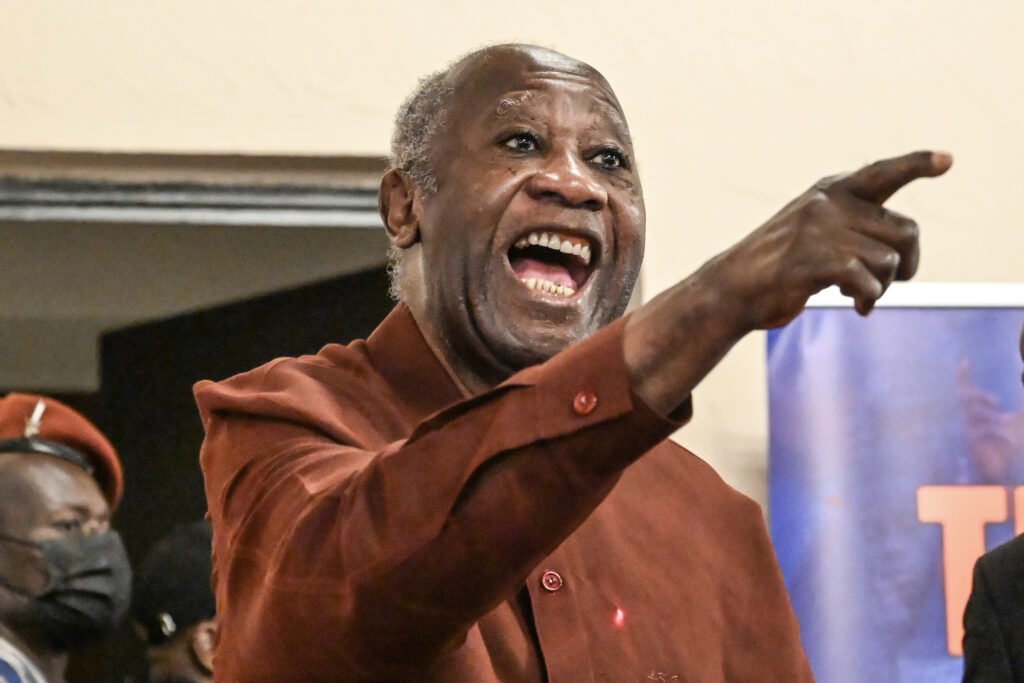Ivory Coast on Monday barred two top opposition leaders, ex-president Laurent Gbagbo and former Credit Suisse CEO Tidjane Thiam, from next month’s presidential election in which President Alassane Ouattara is seeking a controversial fourth term.The constitutional council, tasked with drawing up the final list of candidates, retained five bids to contest the October 25 ballot but eliminated Gbagbo and Thiam on the grounds they have been removed from the electoral roll.The political climate is tense in the west African country, especially due to court rulings barring several opposition figures from the race.Thiam, leader of the largest opposition force, the historically dominant PDCI party, was removed from the electoral register in April over nationality-related legal issues stemming from him acquiring French citizenship.Gbagbo, head of the African Peoples’ Party — Ivory Coast (PPA-CI), was excluded because of a criminal conviction.Both men, however, presented their formal electoral bids to try to unseat 83-year-old Ouattara.”The Constitutional Council has consistently required the status of elector as a condition of eligibility,” its president Chantal Nanaba Camara said, declaring the two men’s candidacies “inadmissible”.Thiam, who has been away from Ivory Coast since mid-March, said Ivorians had been hoping the council would defend their basic right to choose their president at the ballot box.- ‘Organised plebiscite’ -“Instead of that, they find themselves facing a veritable organised plebiscite of the outgoing president, for an unconstitutional fourth term,” Thiam said in a statement sent to AFP.Ouattara will face off against former ministers Jean-Louis Billon, Ahoua Don Mello as well as former first lady Simone Ehivet Gbagbo and Henriette Lagou, who was a candidate in 2015.The electoral roll was last updated at the end of last year, when around a million new names were included.Laurent Gbagbo, his former right-hand man Charles Ble Goude and exiled former prime minister Guillaume Soro have been barred for years over past convictions.Critics had already questioned the legality of Ouattara’s third mandate, as the law limited him to two, until the adoption of a new constitution in 2016 reset the term counter to zero.The opposition boycotted the 2020 vote and Ouattara won by a landslide, with at least 85 people killed in ensuing unrest.Ouattara worked at the International Monetary Fund and the west African regional bank BCEAO and entered politics when Ivory Coast’s founding president, Felix Houphouet-Boigny, appointed him to chair a body on economic recovery in the midst of an economic crisis.As Houphouet-Boigny’s health worsened, Ouattara assumed increasing responsibility for the country’s affairs.When the ailing president died in December 1993, Ouattara was embroiled in a brief power struggle with Henri Konan Bedie, the speaker of parliament, and then left Ivory Coast to join the IMF.In 1995, he joined the Rally of the Republicans (RDR) party and planned on running as their presidential candidate.But he was barred from doing so following new laws requiring both parents of a candidate to be of Ivorian birth and for the candidate to have lived continuously in Ivory Coast prior to an election.He was barred from polls in 2000 on the same grounds. A failed coup two years later led to a civil war that divided the country into a rebel-held and predominantly Muslim north, where Ouattara drew much of his support, and the government-controlled Christian-majority south.Ouattara, who was subjected to violence during the unrest, left the country but returned to contest an election in 2010.Then-president Gbagbo’s refusal to concede defeat to Ouattara led to more unrest, in which more than 3,000 people were killed, before Ouattara became president in 2011.Gbagbo was acquitted of crimes against humanity by the International Criminal Court in The Hague but still has a conviction in Ivory Coast stemming from the post-election crisis that ended his rule.
